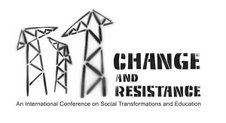Sorina Chiper
Al. I. Cuza Univesrity of IAsi
One of the changes in post socialist Romania has been the visibility of the church as an institution, and a renewed interest in religion. Whereas the communist ideology had been atheist, the new nation, after 1989, defined itself as Christian. Paraphrasing Bruno Latour, it seemed that we had never been communists, and in the initial draft of the Constitution, the Orthodox Christianity had been declared as the official state religion.
During the so-called “transition period,” the Orthodox Church had to face various controversies over the involvement of church leaders with the Secret Police (Securitate) and over the construction of the Orthodox Cathedral of the People. Political leaders have also made public appearances in religious contexts, capitalizing on the trust that Romanians have in the church to build political capital. On the other hand, religious institutions have been increasingly involved in the social.
My presentation will be a case study of a monastery in North East Moldova. Using the framework of anthropology, I will analyse the hybrid forms of religiosity and market economy, the types of entrepreneurship and creative interpretation/deviation from monastic rules that have made possible the setting up and management f a profitable business in the printing industry. Particular questions that I will address are: what types of networks are shaped when one of the persons involved in business management is a monastic? What are the conditions of possibility for the emergence of such a hybrid form of doing business? What discoursive moves have been invoked in promoting the business? What do work ethic, professionalism, obedience and sacrifice mean in such a mixed context?
Subscribe to:
Post Comments (Atom)

2 comments:
Excellent questions, Dr. Chiper.
I should also wonder how the dynamic tension genereated by intertwining rubrics of sacred and profane social practice might manifest new perspectives on old ethical, moral and political dilemmas - all throughout a newly pliable Church infrastructure. Might a newly liberalized economic posture trigger a wider liberalization of monastic life? And to what extent does engagement with the "economic-secular" corrsepond to an inescapable engagement with the "political-secular?" For example, how might the "creative interpretation" of monastic rules be manipulated by political, or otherwise ethically questionable client-actors willing to provide economic security in exchange for the stamp of monastic moral legitimacy?
New conditions of possibility are continuously being produced in the uneven, though dynamic relization of the old - 143,46
still...
Post a Comment